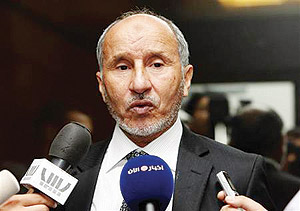Months after rebels brought down the extravagant dictatorship of Muammar Gaddafi, the disarray in Libya’s state finances at the end of last year was so bad the new leadership did not know the size of state assets, how their money was being spent, or what had happened to more than $2 billion transferred from the sovereign wealth fund.


Months after rebels brought down the extravagant dictatorship of Muammar Gaddafi, the disarray in Libya’s state finances at the end of last year was so bad the new leadership did not know the size of state assets, how their money was being spent, or what had happened to more than $2 billion transferred from the sovereign wealth fund.An internal National Transitional Council (NTC) document paints a picture of a government bureaucracy so fractured and disorganised that nobody appeared able to keep track of what money was coming in, and how much was going out.Libyan officials say the anomalies in the state’s finances revealed in the document were the result of complex accounting rules, delays in settling bills and poor communication between government departments - not by money being misused or stolen.But campaigners for financial transparency say that the disarray in tracking government finances creates a fertile environment for abuse to occur, particularly when Libya is now earning over $2 billion a month from selling crude oil."The proper management of public finances, especially oil revenues which make up 90 percent of government revenues, is crucial,” said Giulio Carini, a campaigner with the international anti-corruption group Global Witness."Any lack of transparency and accountability... fuels mistrust and suspicion that the interim and any future government of Libya is not taking the necessary steps to reverse the past legacy of mismanagement.”Libya has lacked a strong, central government since the rebellion, backed by NATO jets and missiles, ended Gaddafi’s 42-year rule last year.International concern about the new Libya has focused on security issues: out-of-control militias clashing with each other, weapons being smuggled across poorly-secured borders, the threat of Libya splitting into regional fiefdoms.






